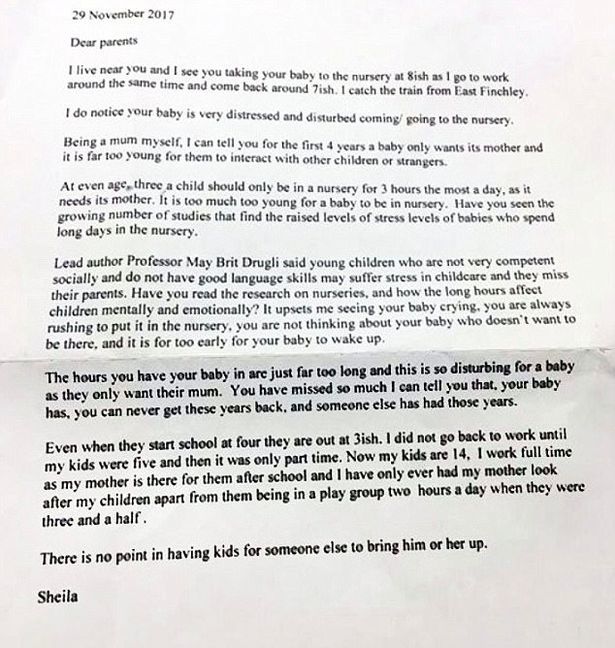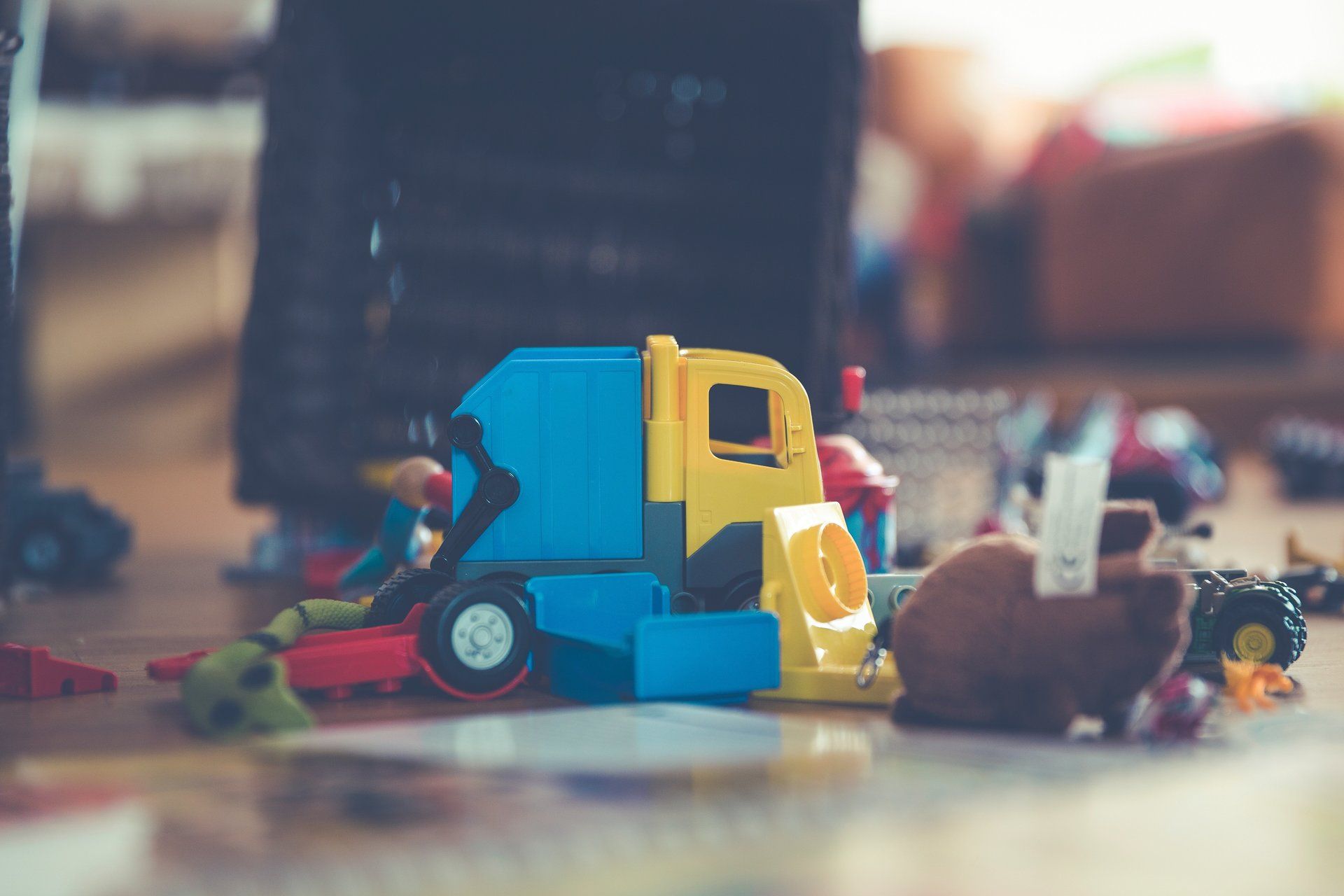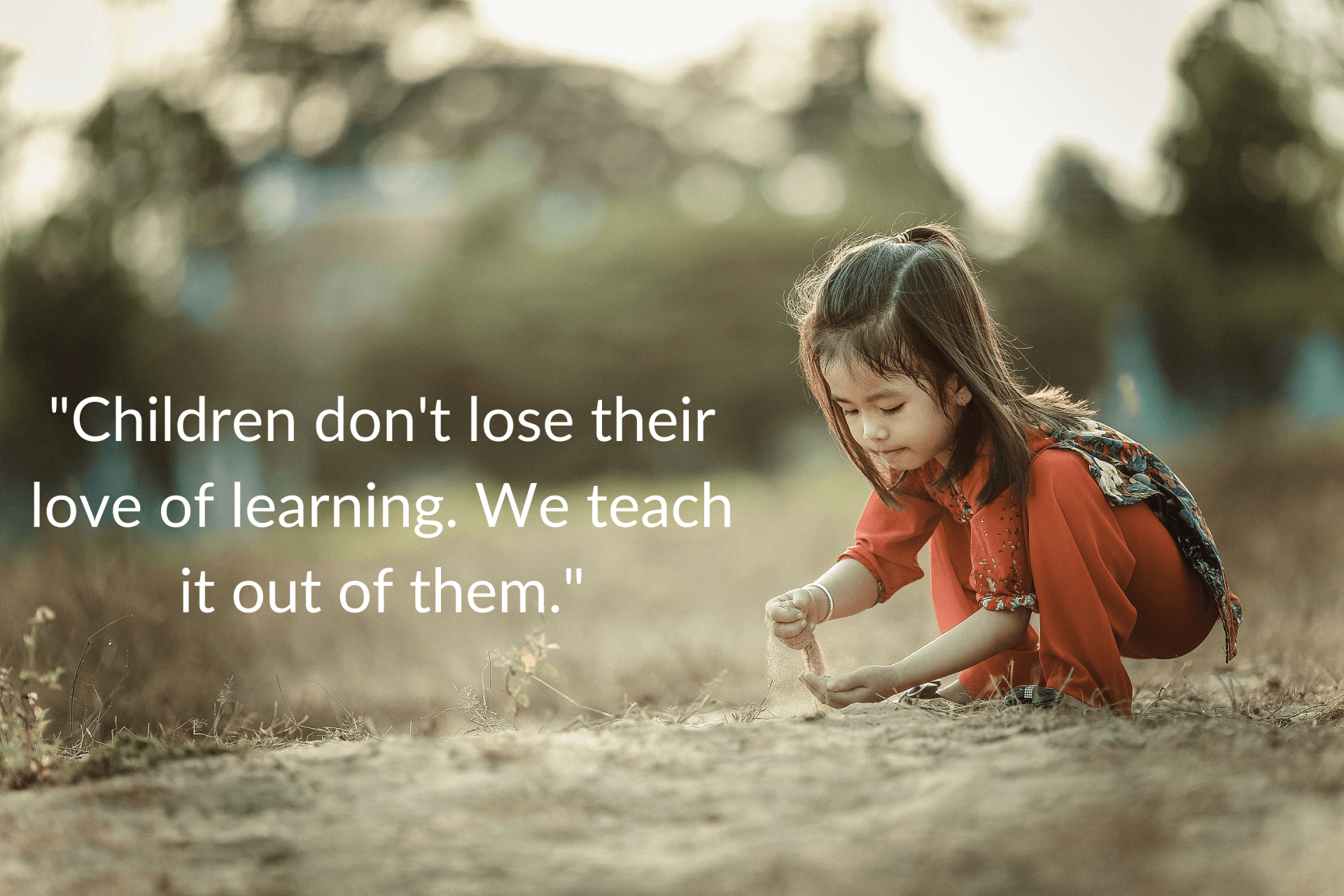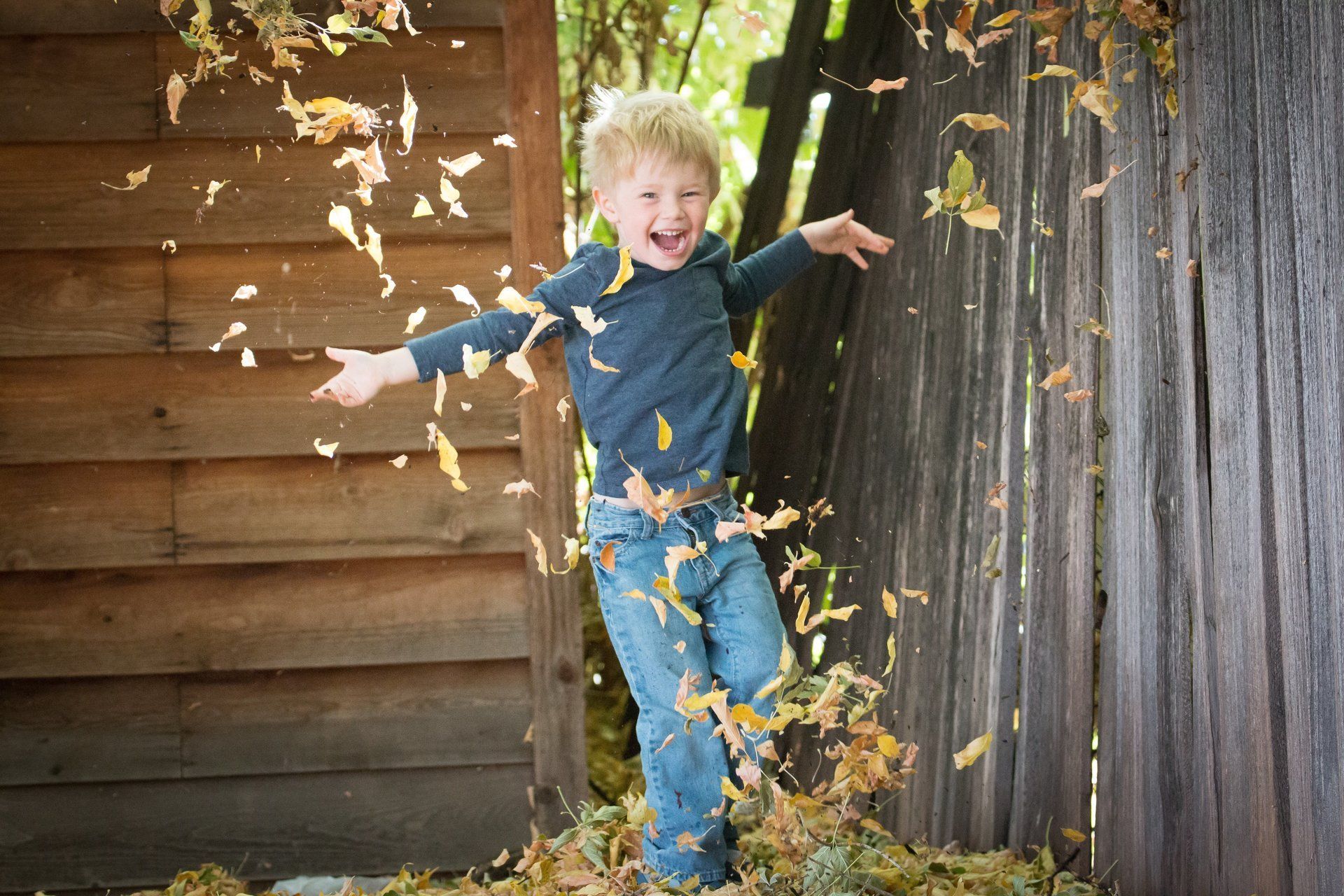Theme days
- by Jane Shaw
- •
- 31 Mar, 2020
- •
A sanity saver for self-isolation!

Theme days are an absolute sanity saver - but doing it for the first time can be daunting. It’s an idea that’s got a lot of interest in our book Things are going to be different now, but it can also instil a bit of fear of failure. So here’s a little more on making sure that your theme day allows you to go to bed smugly satisfied after a day of smiles; instead of down-in-the-dumps because it descended into disaster.
The best thing about theme days is their flexibility. You can build them up so that the children prepare for them and look forward to them for days; or you can simply get up in the morning and get on with it. It can work on a wet, dreary day; or in bright sunshine. It’s as much fun for a two-year-old as a 12-year-old… or even a 15 year old. Because you have a focus, it becomes so much easier to think of activities.
The words “Mummy, let’s do some arts and crafts” fill me with dread; but if you ask me to come up with a ladybird-themed activity, I’ll probably manage something. Try googling ‘arts and crafts for five year olds’. Now try ‘ladybird arts and crafts’. It’s so much easier to find what you need with the narrower search!
What it is
Your theme can be anything, depending on the age of your children and what you and your children like. Our theme days have included ladybirds, the colour red, apples, butterflies, tractors, strawberries, cats, magnetism, robots, shoes (!), a letter of the alphabet, wood …the list is endless. The ideal is four or five types of activity from:
- making and/or eating theme food
- an arts and crafts activity. Even if your child is usually averse to anything crafty, the theme can really spur him on. If you think the crafts will be a flop (or, more problematically, a flop with one child and a hit with another), then perhaps have puzzles (word searches, spot the difference etc) or a lego idea to hand as an alternative.
- a DVD/film/TV programme. Depending on how you do it, theme days can be quite full on, with lots of excitement and grown-up involvement. A bit of screen time calms everything down and allows you time for a cuppa.
- game or puzzle
- dress up
- outdoor adventure
- discover more - learn something new from the internet or books
- a book to read together
- create it with lego.
Get inspired
When it comes to theme days, the internet is your friend, and Pinterest is your bestie. There are loads of theme ideas at pinterest.com/imboredmummy, but there are hundreds of other ideas you can find with a quick search.
Consider steering clear of anything commercial or screen-based like Disney or favourite TV programmes. The temptation is just to buy stuff and the children just don’t get as imaginatively involved - or, weirdly, as excited. There’s also a lot more room for disappointment, particularly if a much coveted toy or endlessly-watched DVD doesn’t appear. If your child really does want to focus on their favourite film, then meeting in the middle goes a long way. A ‘magic’ day - or even a ‘wizards’ school’ day - is far easier than a Harry Potter day; and ‘ice and snow’ is far less restrictive than Frozen.
Theme idea: Rainbows
- A rainbow coloured hopscotch chalked on a path
- Create a rainbow with washing up liquid or bubbles
- Have a treasure hunt to find the pot of gold
- Understand the science and the weather of rainbows
- Learn to sing or play “Somewhere over the rainbow”
- Mandalas, chalking, dream catchers… so many crafts for every age.
- Rainbow cake… or rainbow pancakes… or rainbow spaghetti maybe? Food colouring is where it’s at!
- Watch the Wizard of Oz
- Conduct a rainbow science experiment with kitchen roll and food colouring (more on our Pinterest page)
- Read “The Rainbow Fish”.
Theme idea: Under the sea
- ‘Swim’ everywhere by walking around making a breaststroke movement and gulping like a fish.
- Get out the paddling pool or fill the bath. Add in some surprises - these don’t need to be treats, just random things like apples, squeaky/squirty bath toys, shells or favourite (waterproof!) toys. Fill the pool with water and soft play balls - these will float and hide the surprises. The children can now get a net (or a snorkel and mask) to discover what treasures lurk beneath.
- Make fishcakes.
- Watch Octonauts, Finding Nemo or - if you’re feeling brave - Jaws.
- For older ones, build in Deadly 60 or David Attenborough. ‘Learning’ could be finding out about some obscure sea creatures; the impact of sun cream on coral; or underwater volcanoes; or how pressure changes underwater - the possibilities are endless.
- Go for your exercise dressed as fish… or maybe stick to a bit of pond dipping or pooh sticks.
There’s no right or wrong
My husband has a plan. He’s going to turn our cellar into an underwater haven, without telling the children. He’s going to decorate it with shiny blue and green wrapping paper and inflatable fish; fill it with chocolate coins and other treasure; download some wave sounds, and only allow the children down there if they’re wearing snorkels, masks and swimming gear.
I think he’s insane; he thinks it will blow their minds (he’s probably right). I wouldn’t have thought of it in a million years and it just goes to show that there’s no right or wrong thing to do - it’s whatever works for you and your family.
Theme idea: Football
- Only eat food that’s round (peas, blueberries, make ball-shaped meatballs, balls of ice cream...).
- Football is the exercise theme of the day! A football based obstacle course or skills challenge are alternatives to a game.
- Create your own top trumps style game (this can take DAYS!).
- Get the children to teach you how to play their favourite football game on their console.
- Get a football skills book or follow a skills YouTube channel (and practise what you learn!)
- Recreate the hairstyle of your idol.
Theme idea: Fearful Friday (or Scary Saturday?)
- Ideal for older ones who might think theme days are a bit lame
- Challenge your fears
- Pull ‘scary’ pranks on each other
- Eat food you’d never normally stomach. Frogs legs anyone? (Or maybe just sprouts…)
- Create outfits fit for Hallowe’en (and maybe plan your Hallowe’en party. There’s nothing like being prepared and surely this will all be over by then…)
- Watch a scary film…
- Research some freakishly terrifying natural phenomena… from super-volcanoes to how illusions like levitation are created.
How to make your own top trumps game
- Choose your theme. You could use players or teams.
- Select your categories, like: Defensive ability; Goals scored last season; How much he/she cost; How likely to get injured; Silliness of dives.
- Decide how many cards you want to make. Twelve is good: it’s enough for a quick game, but not so many that everyone gets bored before you’ve finished making them. (It’s also a good number whether you’ve got two, three or four players!) You can add more cards later if needed.
- Research and make your cards. Decide whether you want to include pictures or photos. Some of the scores (like goals scored) are factual and straightforward, but you can have a bit of fun deciding how to rank the more subjective categories. We chose to give marks out of 100 for these. It’s up to you whether you decide the scores individually or through discussion.
- It can be as real or as ridiculous as you like. When we did this my daughter decided to include ‘Silliness of dives’. The boys she was playing with weren’t too impressed at first but it quickly became the most debated topic as they decided their scores.
- You could even play online with friends.

When Sheila wrote her letter, I’m not sure what she thought might happen next. But I’m guessing that she didn’t anticipate that it would hit the national press and set the internet on fire; or that she would be derided across the land.
If you’ve yet to come across Sheila, the story goes like this. Last week, a couple received a letter from Sheila - someone they have never met, but who apparently takes the same route to and from work as they do. At the same time.
In her infinite wisdom, Sheila decided it was OK to tell these parents quite how bad they are (mainly by explaining her own exemplar life choices). In doing so she made it clear that it was the mother’s responsibility to do the childcare; and signed off with the caring, sharing line “There is no point in having kids for someone else to bring him or her up”. (sic)
Now clearly, Sheila is somewhat lacking in social skills and 21st century values. And she’s not quite quoted her research correctly; nor understood that a baby doesn’t have the cognitive skills to cry in anticipation of a future event. (Anyone who has had a cheery pre-schooler right up to the moment of drop-off can recognise this.)
But still, Sheila has raised a really important issue.
There is a solid base of research that children under two in nursery settings have really high levels of cortisol - the stress hormone that, in adults, is linked to heart disease, weight gain, anxiety and depression.
Quite simply, very young children in nurseries are stressed - and it’s something that we need to acknowledge, talk about and respond to.
Now, acknowledging the evidence does not mean jumping to Sheila’s conclusion that childcare is bad and mothers are good. If only life were that simple.
Talking about the role of childcare in our children’s well-being is emotive - but we owe it to our children to have an evidence-based, non-judgmental debate about whether our current model is doing more harm than good.
We need to know more. What exactly is causing the higher levels of stress? Is it the group dynamics - asking children to do things like share when they are simply too young to understand? Is it the physical environments - too noisy, too bright, too over-stimulating? Is it the lack of attachment to a special someone?
As parents we need to be aware of this research to help us make an informed choice about what is right for our child and our family. Policy makers need to recognise it in order to develop a childcare model that meets the needs of children as well as employers. Virtually all childcare providers do everything in their power to make their setting as good as it possibly can be - these providers need to know what they can do to reduce the stress these babies experience.
The debate about childcare often centres on economics - that families have to work; or on resilience - children need to just get on with it. But both these arguments are flawed. Mental health problems cost the economy an estimated £105 billion a year. Secure children grow into resilient adults; negative childhood events are strongly linked to adult mental health issues.
Sheila is a muppet. Let’s treat Sheila’s jaw-droppingly inept curtain-twitching with the disdain it deserves. And childcare is here to stay, whether or not the Sheilas of this world like it.
But let’s talk about that childcare, let’s have the debate. Let’s not say “well, we’ve got to work, so we’ll settle for the status quo”. Because it’s only when we accept the evidence that we will create environments in which we can be sure that our children really are getting the best possible start.

Thank you so much for everything you do for our children. We know how much you love them; we understand that you want to show them you love them. We know how much you want to make them happy. We are truly grateful that they are so privileged to have you in their lives.
But our children have a problem. They are growing up in a very different time than you did - and than we did. They are the generation that want for nothing. Everything is so cheap, so accessible, so now.
Do you remember when you desperately wanted THAT toy; THAT bike? How you had to wait for months, until your birthday or Christmas, and then you played and played and played with your precious new possession?
Our children never experience that.
How many of your toys do you remember to this day? Most? All?
How many toys did you have that you didn't play with? Three? Four? None?
How did you feel when a toy broke?
For our children their toys - their possessions - are unimportant. They’re just not valuable. If they break, they get replaced. If they've been played with for a couple of days they get put away, never to be seen again. Ask my children to list their toys, and they could maybe name 10 or 20 per cent of what they own.
Our children have too much.
We know it's not your fault. We know that you just buy them ‘a little something’ when you see them. That you have far more money available to spend on them than you did on us. That you are understandably delighted that you can give them the things that you couldn't have.
But let me put that in perspective. Every time they see you they get a little something. And every time they see every other family member, they get something. When someone in their class of 30 has a party, they get a party bag. A party bag doesn't contain cake and a balloon. It has sweets, chocolate, balloons, pencils, toys, arts and crafts, books...
The supermarket hands out trading cards with the shopping. School gives them rewards for walking to school, and taking part in the reading challenge, and for raising money for the latest charity day.
When the toy shop has a colouring competition, my daughter gets a colouring book, some headbands and some sweets - just for entering.
I could go on, but you get the picture. Three or four times a week, our children receive ‘a little something’. There is no value, no anticipation, no excitement. There is expectation, entitlement, and immediate dismissal.
And it's not just the ‘little’ somethings. No one wants to be stingy, and everyone can afford more than they once could. And toys are just so cheap. So birthdays and Christmases are now full of a lot of stuff - that quickly gets added to the pile of the instantly forgotten.
I know you only gave our children ‘a couple of things’. But so did everyone else.
Our children have too much. And it does far more than make them spoilt.
The facts are these. Children with too many toys don’t learn how to play properly. There is evidence that a child with fewer toys becomes a more imaginative, creative and content child. She becomes more resourceful; she develops a longer attention span and better social skills.
The child with fewer toys is less likely to be bored. The siblings with fewer toys are less likely to quarrel, and more likely to play together.
We do not want to bring up children who get everything they ask for. We want them to learn to value their possessions. If our son leaves his binoculars on a trip, then we don’t want someone to give him a new pair the next week. If that’s what happens, we cannot complain when he grows up with no understanding of consequences, responsibility or money.
He is not entitled to new binoculars, any more than he is entitled to a job. If we do not teach him that, we are setting up our child for a life of selfishness, unhappiness and continual discontent.
So what am I asking? That you no longer show our children that you love them, that you no longer give them gifts?
No, of course not. But because I know you love them, I am asking you if we can do things differently.
Please, let’s stop buying for the sake of it. Our children know you love them. And not because you buy them gifts. Our children love you too. And it’s not because of the gifts you give them.
We have been in the habit of giving too much for a long time, and it will be a hard habit to break. I don’t want my children’s faces to drop because they don’t receive as many gifts this Christmas as they did last year; I don’t want them to think they’ve been naughty all year!
But please, can we try. My children love you. If you ‘spoil’ them with your time, they will be overjoyed.
Grandad, your grandson is in awe of your knowledge of astronomy. Perhaps you could share that with him? Take him to an event, show him a telescope. He will hold those moments precious.
Grandma, your grandaughter loves to bake, and our culinary skills are woefully inadequate. Can you imagine how much fun she would have if you showed her how to fold the cake mix, while telling her stories of the naughty things her daddy used to do?
We are not asking you to swap gifts for money, but when we have spoken about fewer presents, you have still wanted to give them ‘something’.
The harsh reality is that they will enter the adult world with the burden of debt, the worry of whether they can afford their education, and with little chance of owning their home.
My son has about £2,700 of lego. He’s nine years’ old. I can only begin to imagine how many thousands of pounds have been spent on gifts for him. Imagine if some of that money was saved; and on his 21st birthday he receives £5,000.
Having grown up without expectation and entitlement, he realises that his family have thought about what he will need to give him a headstart in his adult life. The people he loves have given him choices! He can travel; he can study; he can buy the car that will take him to the job in the next town; he can take up the unpaid work experience that will lead him in a direction he loves; he can save the money and have a safety net.
And of course, sometimes between now and then, there will be something he really wants. And if he waits, then maybe - just maybe - his aunts will join together and - gasp - he will be ecstatic when the football kit he’s been dreaming of is there, under the tree; and he will wears it for days, weeks, months on end because it’s so precious!
Do you remember that anticipation, that excitement, that pride in our possessions? Loving something so much you can barely bring yourself to touch it? Treasuring it?
Surely that’s the greatest gift we can give our children?
We love you, and we thank you again for everything you have done for us and for our children. Please, help us now by giving our children a gift they can truly treasure; the gift of less.
x


